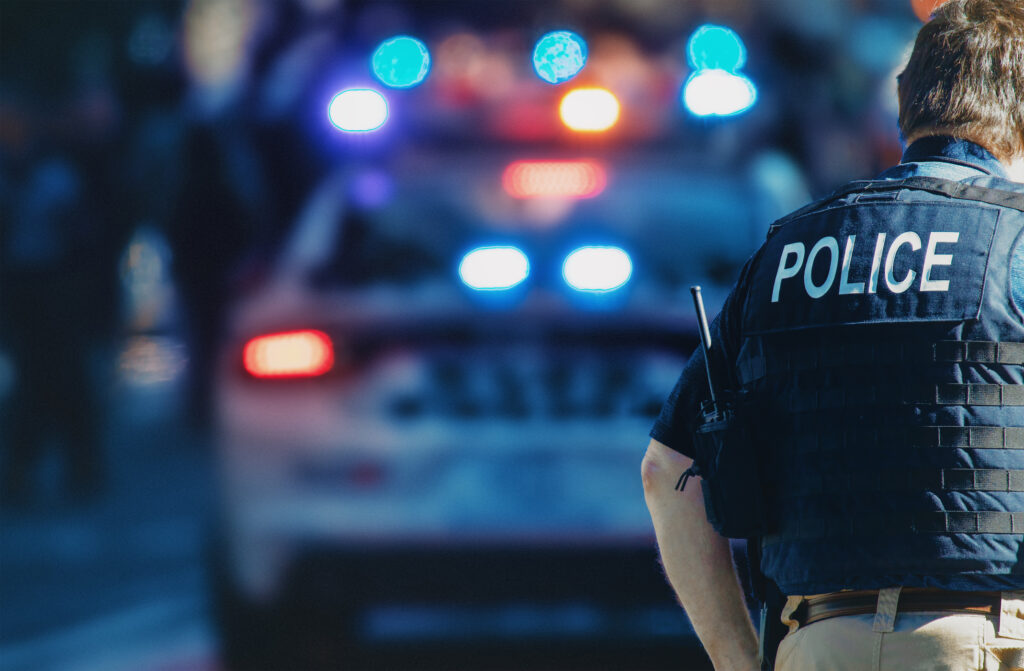By Jeffrey A. Roberts
CFOIC Executive Director
A Colorado law that went into effect in 2021 sets a timetable for the public release of law enforcement body-worn camera footage of incidents “in which there is a complaint of peace officer misconduct.” But if an officer shoots and kills someone, and no one formally complains, does the footage-release provision apply?
Following three recent officer-involved shootings, reporters have been denied body-cam video despite citing C.R.S. § 24-31-902(2)(a), part of sweeping law enforcement transparency and accountability legislation enacted in the wake of George Floyd’s killing while in Minneapolis police custody.
The statute says all unedited video and audio recordings of incidents “in which there is a complaint of peace officer misconduct by another peace officer, a civilian, or nonprofit organization, through notice to the law enforcement agency involved in the alleged misconduct” must be released to the public no later than 21 days after a request is made. An agency can delay the release of video until 45 days from the date of an allegation of misconduct if the video “would substantially interfere with or jeopardize an active or ongoing investigation.”

The new law has made the timely release of body-cam footage to the public much more commonplace in Colorado.
But for certain incidents, law enforcement agencies have treated requests for footage like they did before Senate Bill 20-217 and House Bill 21-1250 — as records that could be withheld for an indefinite time period under the Colorado Criminal Justice Records Act if an agency determines that disclosure would be “contrary to the public interest.”
- The Summit County Sheriff’s Office and Dillon Police Department each denied Summit Daily reporter Ryan Spencer’s requests for body-cam footage related to the July 9 shooting of 18-year-old Charlie Foster by officers.
- Boulder Police denied a request made by Boulder Reporting Lab’s John Herrick for footage of two officers shooting and killing 36-year-old Christopher Swanger on May 25.
- The police department in Monte Vista denied Colorado Sun reporter Olivia Prentzel’s request for footage of an officer shooting and killing 18-year-old Xavier Sanchez on March 21.
The Dillon, Boulder and Monte Vista police departments each told the journalists there had been no complaint of officer misconduct related to the incidents, and therefore C.R.S. § 24-31-902(2)(a) didn’t apply. Spencer said the Summit County sheriff didn’t respond to his questions about the new law but instead sent him a detailed explanation of how he balanced the public interest versus other interests to keep the footage confidential “at this time.”
State law requires law enforcement agencies to have protocols for investigating incidents in which an officer shoots and injures or kills someone. Such investigations should automatically serve as the complaints of “peace officer misconduct” required to activate the body-cam footage statute, said Rachael Johnson, a Colorado-based attorney for the Reporters Committee for Freedom of the Press who has represented journalists regarding requests for body-cam video.
“It is indisputable that there was an investigation into the actions taken by the officers that led to Mr. Sanchez’s death,” Johnson wrote in a July letter to the Monte Vista city attorney on Prentzel’s behalf after the officers were not charged.
Because such investigations and any internal investigations determine whether a shooting was justified or not, “that satisfies the notice-of-alleged-misconduct prong of the statute,” Johnson told the Colorado Freedom of Information Coalition. “And so they should be releasing the footage just based on that.”
Johnson also pointed out that the law allows any “civilian” to file a complaint, but there is no statutory definition of what constitutes a “complaint.” In her letter to Monte Vista, she wrote that “the complaint here originates in a civilian’s (Ms. Prentzel’s) public records request for access to information about police officers’ actions that led to the death of a civilian. A (Colorado Open Records Act) request satisfies the § 24-31-902(2)(a) complaint of misconduct requirement when a civilian dies or has been suffered grave bodily injury.”
Denver civil rights attorney Felipe Bohnet-Gomez, who has made numerous requests for body-cam footage on behalf of clients, told CFOIC reporters will likely have better luck obtaining video if they use the word “complaint” in their requests. “That should be enough,” he said.
“It seems like a pointless hoop to jump through to get these records,” Bohnet-Gomez added. “The overall spirit of this law was definitely public disclosure so it’s unfortunate that various law enforcement agencies are taking whatever path they can to resist that.”
Some journalists have been reluctant to make formal civilian complaints of officer misconduct to obtain footage, not wanting to appear like they’re getting involved in a case. But FOX31 investigative reporter Rob Low did so last fall after trying to get video from a March 2022 shooting involving three Arapahoe County sheriff’s deputies. The sheriff’s office released the footage to the public about three weeks after his request.
“I would love for the state to amend the law to let us obtain body cam (footage) even when there’s no ‘complaint of peace officer misconduct,’” Low wrote in an email to CFOIC. “Sometimes the body cam can be super relevant to the public interest, even if we don’t suspect officer misconduct or simply don’t know if there was misconduct but we suspect there might be. That’s why we need the body cam.”
In late 2021, Low’s reporting on an incident involving Denver police prompted an internal investigation, which in turn triggered the body-cam video release provision in C.R.S. § 24-31-902(2)(a).
In that case, Low said he was prepared to make the complaint himself and had received permission from FOX31’s news director. “Typically, we don’t involve ourselves if we don’t have to, but why not?” he told CFOIC at the time. “That’s the role of the media. If we see something that’s questionable — and the family’s too scared, they’re not going to do it, and I want some answers — then I’m prepared to do it myself.”
Follow the Colorado Freedom of Information Coalition on Twitter @CoFOIC. Like CFOIC’s Facebook page. Do you appreciate the information and resources provided by CFOIC? Please consider making a tax-deductible donation.




